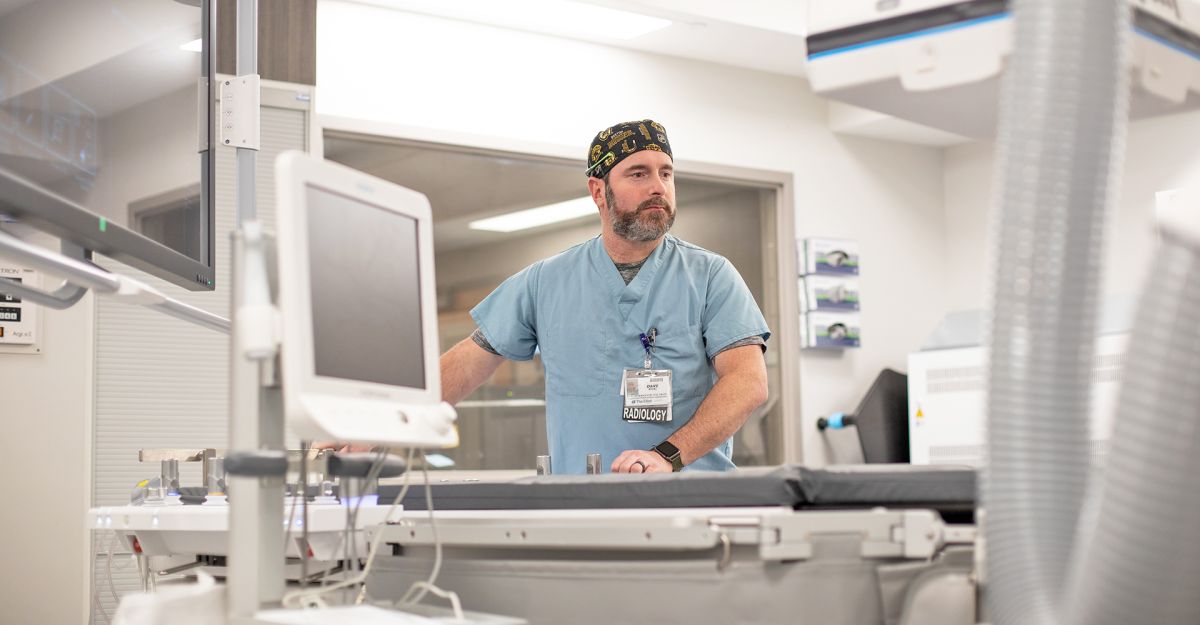Bone Densitometry
Bone densitometry – also known as bone density scan, DEXA, or DXA – is a method of determining bone mass loss by measuring radiation absorption through the skeleton.
Our community is seeing a surge in respiratory illness and influenza, leading to longer wait times in the Emergency Department. Learn more about how to receive care where and when you need it. Click Here

Bone densitometry – also known as bone density scan, DEXA, or DXA – is a method of determining bone mass loss by measuring radiation absorption through the skeleton.
A bone densitometer, or bone density test, uses painless radiographic imaging to evaluate and measure the density of the bone in your spine, hips, or forearms. Age, weight, sex, and ethnic background are also helpful in determining your age-related fracture risk.
Avoid clothing with snaps, buttons, and zippers. Metal and plastic in the area being scanned will interfere with the exam. Allow 30 minutes for your appointment.
There are negligible risks associated with the bone densitometry DXA scan. People who are pregnant or suspect they may be pregnant should check with their physician prior to having this scan.